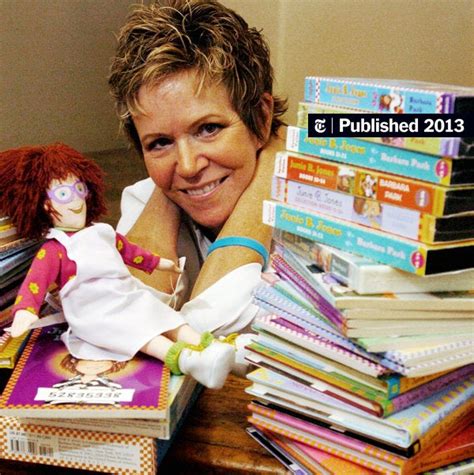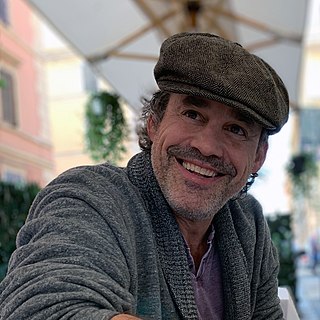A Quote by Cory Doctorow
There are people already sharing eBooks out there, .. and they do it simply because they love books. You don't buy a second copy of a book, cut the spine off, lay each page on a scanner, run that .tif through an OCR (Optical Character Reader), hand edit the resulting output for errors and then post it online if you don't love the book. it can up to 80 hours to turn a printed novel into an eBook. I figure if someone out there is willing to put in 80 hours of work promoting my book, then I'd prefer they do it in a way that gives a better return to me.
Quote Topics
Related Quotes
I first heard the term "meta-novel" at a writer's conference in Tulsa, Oklahoma. The idea is that even though each book in a series stands alone, when read collectively they form one big ongoing novel about the main character. Each book represents its own arc: in book one of the series we meet the character and establish a meta-goal that will carry him through further books, in book two that meta-goal is tested, in book three - you get the picture.
A book , once it is printed and published, becomes individual. It is by its publication as decisively severed from its author as in parturition a child is cut off from its parent. The book "means" thereafter, perforce, both grammatically and actually, whatever meaning this or that reader gets out of it.
I love the book. I love the feel of a book in my hands, the compactness of it, the shape, the size. I love the feel of paper. The sound it makes when I turn a page. I love the beauty of print on paper, the patterns, the shapes, the fonts. I am astonished by the versatility and practicality of The Book. It is so simple. It is so fit for its purpose. It may give me mere content, but no e-reader will ever give me that sort of added pleasure.
Every reader, as he reads, is actually the reader of himself. The writer's work is only a kind of optical instrument he provides the reader so he can discern what he might never have seen in himself without this book. The reader's recognition in himself of what the book says is the proof of the book's truth.
Here's what I want from a book, what I demand, what I pray for when I take up a novel and begin to read the first sentence: I want everything and nothing less, the full measure of a writer's heart. I want a novel so poetic that I do not have to turn to the standby anthologies of poetry to satisfy that itch for music, for perfection and economy of phrasing, for exactness of tone. Then, too, I want a book so filled with story and character that I read page after page without thinking of food or drink because a writer has possessed me, crazed with an unappeasable thirst to know what happens next.
It's very bad to write a novel by act of will. I can do a book of nonfiction work that way - just sign the contract and do the book because, provided the topic has some meaning for me, I know I can do it. But a novel is different. A novel is more like falling in love. You don't say, 'I'm going to fall in love next Tuesday, I'm going to begin my novel.' The novel has to come to you. It has to feel just like love.
In my couple of books, including Going Clear, the book about Scientology, I thought it seemed appropriate at the end of the book to help the reader frame things. Because we've gone through the history, and there's likely conflictual feelings in the reader's mind. The reader may not agree with me, but I don't try to influence the reader's judgment. I know everybody who picks this book up already has a decided opinion. But my goal is to open the reader's mind a little bit to alternative narratives.
The good news (for writers) is that this means that ebooks on computers are more likely to be an enticement to buy the printed book (which is, after all, cheap, easily had, and easy to use) than a substitute for it. You can probably read just enough of the book off the screen to realize you want to be reading it on paper.
In the course of writing a book I'll produce loads of pieces of paper to help the novel itself. Diagrams, charts, family trees. And at the end of each book I'll pack it all away. It takes me a while to do it - it's like a relationship that way; there's a period of letting - go, of grief, in a way - but then I box it up, label it, and put it in the attic.
































